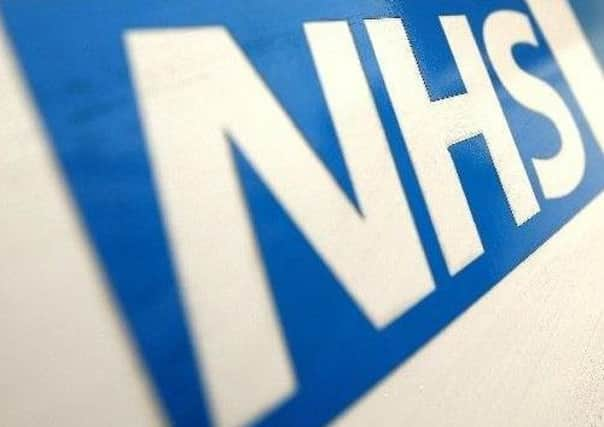David Wood: New types of medics are future of care


Due to advances in understanding and treating illnesses, new technologies and also new medication, the population is living longer and developing more long-term, chronic conditions, which is putting a huge strain on resources.
There is the added pressure of a shortage of healthcare professionals, particularly doctors, meaning radical change is needed quickly to relieve the financial pressure on the service.
Advertisement
Hide AdAdvertisement
Hide AdThis has led to health provision in England moving away from providing a sickness service centred on clinicians towards the provision of a prevention service focused around patients.
In order to meet the changing demands made of the NHS, there is a need to reshape the workforce and extend the primary care roles of nurses, paramedics and pharmacists, as recommended by the Nuffield Trust in a report published this month.
This may be through greater use of existing roles such as specialist nurses, advanced clinical practitioners and non-medical prescribers, but also through newer roles such as physician associates who are trained to support doctors in the diagnosis and management of patients.
In order to adequately prepare people to undertake these roles, significant investment is required and suitable training and education programmes need to be established. These practitioners need to be developed to provide safe, effective patient-focused care.
Advertisement
Hide AdAdvertisement
Hide AdMany higher education institutions, including Sheffield Hallam University, train increasing numbers of advanced clinical practitioners (ACPs) and non-medical prescribers.
These practitioners are taking on roles from junior doctors. ACPs are healthcare professionals educated to master’s degree level and have acquired a knowledge base to support complex clinical decision making skills.
The range of professional backgrounds an ACP may have include the following: nurse, paramedic, pharmacist, radiographer and physiotherapist. This means that the patient can see the right person first time. They assess, diagnose and treat patients the way doctors do.
In addition, they are cheaper than doctors and although cheaper isn’t always better, we need to think carefully about how the NHS spends money.
Advertisement
Hide AdAdvertisement
Hide AdA senior nurse who works as an ACP will usually earn two-thirds that of a comparably skilled junior doctor and without a consultant pension premium.
ACPs have years of clinical experience and this new way of working needs to be exploited. And many NHS Trusts are doing just that. For example, Sheffield Teaching Hospitals NHS Trust is supporting a growing number of such staff.
However, to build confidence in an excellent patient experience, the public need to have a clear understanding of the role and abilities of ACPs.
Anecdotal evidence would suggest that despite numerous success stories of Advance Practitioners working effectively, there is a national naivety to the role both publicly and inside the NHS.
Advertisement
Hide AdAdvertisement
Hide AdOften a patient will not realise that they have been seen by an ACP, assuming that they have been seen by a doctor.
It goes further. If nurses take on more advanced roles, then the nursing profession needs to have additional newly-qualified nurses joining the register.
The number of student nurse places at higher education institutions has been increasing, but it is questionable whether there are sufficient students with large numbers of nurses reaching retirement age.
By reviewing and reshaping the NHS workforce, there are significant opportunities for enhancing work satisfaction and, more importantly, for improving patient care.
Advertisement
Hide AdAdvertisement
Hide AdThere would be opportunities for all grades of staff as more senior professional staff would develop their skills into prescribing and advanced practice.
Other staff could develop their skills to fill the gaps left behind.
ACPs, non-medical prescribers and physician associates add to the range of clinicians able to see and treat patients, enabling the whole team to function more effectively. This will ensure that we have an NHS that is fit for purpose and able to meet the challenges of tomorrow.
David Wood is Principal Lecturer in Adult Nursing and Public Health at Sheffield Hallam University.